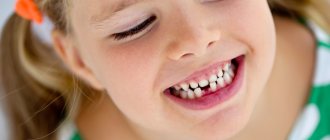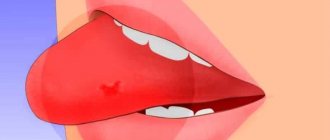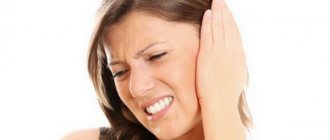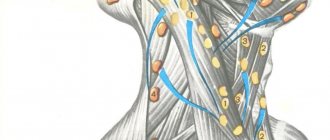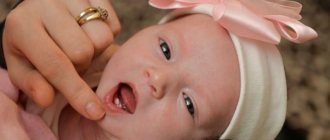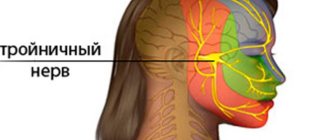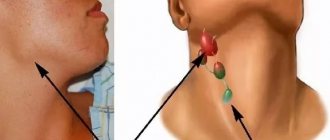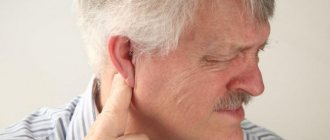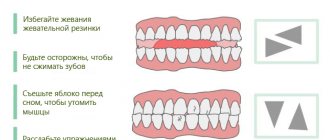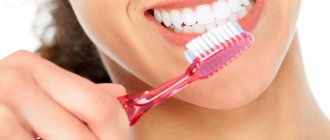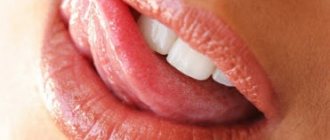May 18, 2018
Averyanova Sveta
Approximately half of the parents whose children have not reached the age of 8 are faced with the phenomenon of bruxism, or odonterism. This is the scientific name for involuntary grinding or grinding of teeth. Some get scared when a child does this, some don’t pay attention, some, in the old fashioned way, believe that they grind their teeth because of worms.
If the baby sleeps in a separate room, parents may not suspect that he grinds his teeth in his sleep. According to Dr. Komarovsky, this problem is not considered a serious disease, but it can lead to dental defects or be a symptom of more serious ailments.
Should I worry when my child grinds his teeth in his sleep and in what cases should I consult a doctor? You need to make a decision after understanding the causes of childhood bruxism.
Causes of night teeth grinding in children
Watch the following video, in which pediatric dentist Alena Makarenko talks in detail about the causes of teeth grinding in children.
Almost every person, experiencing pain, painful emotional experiences, or other mental or physical discomfort, involuntarily clenches his jaw. An increase in the tone of the masticatory muscles provokes grinding and closing of the jaws. This is typical for both adults and children. Teeth grinding can occur during the day and at night in the following situations:
- Psychological stress;
- After suffering stress . This is the cause of most cases. If a child experiences emotional overload related to schoolwork, problems in the family, or relationships between peers, it is not surprising that his jaw is constantly clenched.
- Violation of the daily routine . If the information load is high: TV shows, cartoons, computer games, especially before bedtime, the instability of the children's nervous system leads to overexcitation. Lack of sleep and sleep disturbances contribute to nocturnal bruxism.
- Inflammatory processes in the nasopharynx . Frequent adenoiditis, rhinitis, and sinusitis make it difficult to breathe through the nose, which can cause muscle spasms. This causes the baby to chatter his teeth.
- The appearance of baby teeth or their replacement by permanent ones . The first tooth causes a lot of trouble for babies from 4 months of age. The baby becomes restless, as its appearance causes unbearable itching in the jaws. The process is repeated later when permanent teeth replace baby teeth. Wanting to get rid of unpleasant sensations, the child begins to grind his jaws together.
- If there is a violation in the formation of the maxillofacial apparatus, problems with bite.
- When the disease is hereditary .
- The baby's jaws need sufficient load. The reason why a child grinds his teeth at night may be the lack of solid food in his diet . The baby will involuntarily clench his jaw to relieve tension in his facial muscles.
At what age does your child grind his teeth?
- 7 years and older 31%, 171 votes
171 votes 31%171 votes - 31% of all votes
- 3-5 years 25%, 140 votes
140 votes 25%
140 votes - 25% of all votes
- 5-7 years 25%, 136 votes
136 votes 25%
136 votes - 25% of all votes
- 2-3 years 13%, 69 votes
69 votes 13%
69 votes - 13% of all votes
- 1-2 years 4%, 23 votes
23 votes 4%
23 votes - 4% of all votes
- Up to 1 year 2%, 12 votes
12 votes 2%
12 votes - 2% of all votes
Total votes: 551
18.05.2018
×
You or from your IP have already voted.
The main causes of childhood bruxism
A child grinds his teeth in his sleep for various reasons. They are divided into:
- dental;
- psychological and emotional;
- neurological;
- other reasons.
The manifestation of bruxism can be constant or episodic. If attacks occur frequently, then you need to consult a doctor and undergo a course of treatment. In rare cases, the disease is not treated. By the age of 10, children outgrow this phenomenon.
Dental Features
The development of the problem most often occurs due to the developmental characteristics of the child’s dental apparatus. This is due to improper interaction of the dentition with each other, as well as the work of the joints and muscles in this area. Occlusion of the upper and lower jaws, which are predisposed to the development of teeth grinding, includes:
- static – interaction occurs with physiological contact of the jaws;
- motor – the teeth touch when the jaws move;
- central – clenching of the teeth during normal interaction of the jaws;
- lateral – shifting the upper or lower row of teeth to the side;
- anterior – moving the upper jaw forward.
In addition to the development of bite, bruxism is caused by the following dental factors:
- bite deformation;
- development of extra teeth;
- inflammation in the joints of the jaw;
- improper treatment of crowns;
- failure to comply with dental hygiene rules.
Important! Night grinding of teeth often occurs when braces and orthodontic plates are installed incorrectly to correct bite and tooth growth.
Malocclusion
Psychological factor
At an early age, children are impressionable. Their emotional and psychological state is easily disturbed by new bright events, which become the causes of the manifestation of pathology. These factors include:
- conflict situation at school or kindergarten with peers, teachers or educators;
- fear of taking an important exam;
- frequent beatings in the family;
- observing parents' quarrels;
- visiting a new club;
- fatigue.
Stressful situations cause increased muscle tone in the facial region, after which the child begins to grind his teeth in his sleep. If an examination by a dentist does not reveal the presence of pathologies, this means that you need to contact a child psychologist for help.
Neurological causes
Ododentism is also caused by disorders of the central nervous system. Previously, a popular version of the problem was the presence of helminthiasis. Currently, this phenomenon is in no way associated with worms. Doctors are increasingly suggesting a neurological disorder. These reasons include:
- the development of scoliosis of various shapes and nature, in which the cervical vertebrae are in an incorrect position;
- disease of the trigeminal nerve, which innervates the masticatory nerves of the face, causing impairment of motor function;
- taking medications for the treatment of chronic diseases of the central nervous system.
Important! In case of neurological disorders, the child requires examination by specialists and drug treatment.
Other factors
Such reasons are not fully understood by scientists. However, many experts do not exclude their influence on the development of bruxism. These include:
- proliferation of adenoids;
- deviated nasal septum;
- taking medications containing caffeine;
- insufficient amount of saliva produced, which causes dryness of the mucous membranes of the oral cavity;
- gum disease, which contributes to the loosening of teeth before their physiological loss begins.
The boy clenched his teeth
Secondary reasons
With a lack of vital minerals, a lack of calcium and magnesium leads to convulsive contractions of muscles, including facial muscles, as a result of which the baby begins to clench his jaw.
Strong grinding of teeth, according to folk superstitions, means the presence of helminths . Indeed, parasites, in particular pinworms, can be the reason that the baby grinds his teeth a lot. But the famous pediatrician Komarovsky denies this reason and considers it a myth.
Wearing braces and poor-quality dental fillings are factors that cause discomfort and a desire to get rid of a foreign object. Often, during an episodic attack, children experience increased heart rate and breathing, and blood pressure may increase.
General description of the phenomenon
Half of children under 5 years of age involuntarily grind their teeth due to a spasm of the chewing muscles. Teeth grinding occurs involuntarily, occurs in paroxysms, lasts 1-2 minutes, and then repeats. The characteristic sound of teeth rubbing against each other can be heard from the nursery several times a night.
Attacks do not depend on the time of day and can occur during periods of rest and wakefulness. The child grinds his teeth day and night, but daytime grinding bothers adults more than nighttime grinding. Daytime grinding attacks are called bruxomania. Parents turn to the pediatrician when an episodic phenomenon develops into a chronic disorder.
Bruxism in children can be caused by dental, neurological and psychological reasons. In order for a child to stop grinding his teeth, the causes must be eliminated. Installing them is not so easy: you will need to undergo examination by a dentist, neurologist, endocrinologist and psychologist.
Teeth grinding is more common in young children. After 6-7 years it ceases to be a problem and disappears on its own. Bruxism is a rare phenomenon in adolescence and older age, which is diagnosed in only 10-15% of patients.
It is impossible to ignore teeth grinding in a child - it negatively affects the teeth, jaw and joints . Because of it, children:
- tooth enamel wears off;
- teeth become loose;
- the bite is disturbed;
- teeth become sensitive to hot, cold, sour and bitter foods;
- the temporomandibular joint is overloaded;
- spasms of the masticatory muscles occur;
- involuntary spasms of the facial muscles occur, distorting the contour of the face.
Malocclusion leads to wear and then loss of teeth in youth, dislocation of the temporomandibular joint and facial asymmetry.
Teeth grinding is not considered a separate disease. This is a symptom caused by a disorder in the development of the dental system, parasitic diseases, and nervous strain. When making a diagnosis, the doctor assesses the general state of health, taking into account systemic, neurological and somatic symptoms.
Having heard the characteristic sound of grinding, parents need to carefully monitor the child and notice anything new in his behavior. In parallel with bruxism, other symptoms appear, which will make it easier to determine its causes. Tell your pediatrician if your baby has any complaints about your health that indicate fatigue or the development of a disease in the digestive, endocrine, or nervous systems.
Daytime attacks of bruxism
At night, the child is not aware of the disease. Clicking your teeth during the day can be a bad habit. Children love to imitate their elders. If a child hears or sees someone grinding their teeth, they can repeat it.
Subsequently, the action you like can develop into a habit. At this moment, it is better not to fixate the baby’s attention and switch it to something else. A big child needs to be explained that teeth need to be protected.
A baby can start clicking his incisors when they first appear - he is interested in every new object that appears in his mouth.
Weaning from the breast or pacifier can also cause the baby to grind his teeth. The lack of a familiar object leads to the fact that the baby begins to constantly suck his finger, bite his lips, and grind his jaws.
Advice to parents ! A warm, friendly atmosphere in the family and spiritual closeness with parents can heal and prevent many diseases. Pay attention to changes in the baby’s behavior; timely detection and elimination of the causes of the disease will prevent it from developing into a chronic disease.
teeth grinding in a child's sleep
So, our baby doll is one year old.
I have never written monthly reports about what new things the child pleased us with. Most likely, the reason for this turned out to be the banal “laziness” and “no time.” But a year is different, a year is a milestone, and it’s a sin to remain silent.
So, here's my short report.
1. About nutrition.
By the time we were one year old, our nutrition schedule looked like this: first breakfast (9 - 10 o'clock) - mixture; the second, if I may say so, breakfast (12 - 14 hours depending on the time of awakening and the presence or absence of sleep between the first and second meals) - milk porridge with fruit. Porridges: corn, buckwheat, rice, oatmeal and their combinations. I discovered a wonderful quick way to cook porridge in a slow cooker, but before, fool, I cooked it for a long time, according to some strange proportions (a glass of water to 4 teaspoons of flour) until the optimal consistency was achieved, I cooked it in the evening so as not to waste so much time in the morning . Now this moment has somehow become simpler. Our next meal falls at 16-18 hours (again, depending on our sleep and wakefulness patterns, which vary slightly for us). These are vegetables and meat. Vegetables most often are something stewed, baked, like a vegetable stew. To be honest, I’m already fed up, I’m in search of new vegetable dishes that wouldn’t be scary to give to a child, and when it comes to vegetables, I’m not a very sophisticated gourmet. We don’t have home-cooked meat, since my daughter absolutely doesn’t like pieces, and she doesn’t like vegetables in the form of puree even more. For now he eats meat from jars, but I hope that soon he will be able to switch to normal human food. For dessert - cottage cheese and fruit. The first dinner takes place at 19-20 hours and is a meal based on fermented milk products - kefir, cottage cheese with fruit. The second dinner is a mixture, around 22:00. I make compotes every day - from apples, pears, dried apricots, prunes, cherries, and lately I’ve often added rose hips to them. Still not good with soups. Well, my daughter, everything is correct. I'm also not very good with soups. And I can’t even persuade, convince, show by my own example how delicious it is, because for me soup is generally something inedible. I’m wondering how we can get out of this situation: we probably need to find some other options for soups. Obviously, my daughter is a gourmet, and some cabbage soup and borscht will not work with her. Should I try beetroot soup with milk or something like that?
Lately, due to the fact that breakfast has slipped somewhere towards lunch, I get up earlier in order to have time to cook porridge for Ruslana. Now the meal schedule has become similar to the classic one: breakfast - lunch - afternoon snack - dinner - mixture at night. Accordingly, we only have the mixture once a day, sometimes (rarely) twice.
2. About speech
Ruslana says. And her vocabulary consists of one full word - mom. What is characteristic is that this word means both mom and dad. With these words she hugs me and turns to me, and runs with him in the evening to meet dad from work. And when I hear “mom” from my daughter, I can never know for sure whether she is trying to convey something to me or saying how much she misses dad. Our persuasion to say “dad” only causes the child to smile and stubbornly “mom” in response.
There is another type of word - “khkhkh”. It means "cat". With this word, Ruslana addresses the mentioned family member and looks at the bookcase, on top of which we have a cat bed.
3. About the first steps
Ruslana can walk independently. Physically. She took her first steps somewhere in October, at the age of 9-10 months. But this discovery has not yet inspired her to independent exploits. Our girl is careful, yes. She can walk across the entire room on her own, go to the kitchen, but she is afraid to walk alone, she is not confident in her abilities, and therefore she begs for my finger to hold on to. Although, staying here is a strong word. Rather, she drags me along with her by this very finger. And I trudge around in the pose of the letter zyu, and then my lower back ache.
I try in every possible way to encourage my daughter to walk independently, but so far I have not seen any serious results.
4. About the potty
Alas and ah. For a year, Ruslana never relieved herself in the potty. She doesn’t know in principle that this can be done in such a way that her panties remain dry and clean.
Previously, I was of a rather categorical opinion that if a child still does not use the potty after one year, this is an indicator that he has a lazy mother who abused diapers. By the time a child is one year old, he shouldn’t just go straight to the potty and nothing else, everything is individual, and the baby is still learning to control himself, and it doesn’t work right away and not always... But know what a potty is and what it’s for , the one-year-old should, and if not, then shame on his mother! That's what I thought a year ago. That is, my attitude in this matter was quite definite, and I was not keen on diapers at home during the daytime; we used gauze or inserts from reusable diapers. Well, with the exception of those cases when dad is sitting with his daughter, when we have guests and if I’m very busy with something and can’t make sure that the gauze is dry.
Everything would be fine, but we were faced with a problem that was unexpected for us: it turned out that Ruslana was afraid of the potty. When I first tried to put my daughter on the potty, bitter crying followed. We tried changing the pot - the reaction remained unchanged. After this bad experience, we decided that it was not time for the potty yet and that there was no need to be persistent in such a situation. Thus, this time has not yet come. But I don’t insist, because I’m afraid of developing a persistent dislike for the potty in the child’s mind and thereby worsening the problem. Actually, there is no particular problem: well, he doesn’t go to the potty, it’s not difficult for me to wash panties, gauze and other wardrobe items that suffer from this once again, especially since in our advanced age there are washing machines and normal irons. So I turned from a principled mom to a careless mom who doesn’t potty train her child, and it doesn’t bother me yet.
5. About miscellaneous things
Our baby is growing by leaps and bounds. The orthopedic sandals we bought her in the fall (size 18) are already too small, and I haven’t had time to wear them. But she gnawed at will. And while they weren’t completely falling apart, we gave them to a friend, they are still too small, but I think by the time the baby walks, her leg will grow, and they will be just right.
He usually sleeps twice during the day. He rarely wakes up at night - if something bothers him. In general, as from the first days he sleeps soundly - that’s how all this has been preserved. Accordingly, there were and are no night feedings (unless in exceptional cases).
He says something all the time. He happily greets and sees off everyone, waving his hand. Makes kissing sounds. Clicks his tongue. He grinds his teeth (what scares me - what if the enamel gets damaged?). By the way, we don’t brush our teeth yet. To be honest, toothbrushes seem rough to me, although I understand that they need to be cleaned. We'll go to the dentist soon and see what he says.
For Ruslana's birthday, she was given a children's synthesizer with many melodies and animal sounds, the child was delighted. He dances to music - both standing and sitting. He also likes to dance to the song “Zainka, dance” - he stomps his feet. I learned to clap my hands.
Another birthday gift - a horse on wheels - also came into use: Ruslana figured out how to ride it (you need to bounce on your butt while sitting on the horse) and quite quickly cuts around the room on a horse.
He likes to play tag, hide behind curtains, feel my face through the curtains. We also have a very exciting game in our arsenal called “Where is Ruslana?” There are many variations of this game: you can ask, covering your eyes with your hands - then Ruslana crawls up and removes my hands from my eyes, showing: “Here I am!”, you can go to the kitchen and ask there - then you will hear the giggles and stomping of a hastily crawling man. He takes my massager and combs his hair, then hands it to me so that I can comb my hair too. She often just fiddles with her hair brush.
She loves to help: she helps make the bed (she shakes the blanket), sometimes she wipes up her puddles on the floor, she often helps in the kitchen, she loves to watch her bathtub fill up. He is interested in my embroideries - he drags the unfinished work from the table, touches it, fiddles with it, looks at it, and is happy when I show it.
We read books with her - but she only likes to listen at first, then the book attracts attention as an object that can be frayed and chewed, there is no time for reading.
He knows the word “can’t” and shakes his head (“No, no, I won’t go there, I’ll just look”). Recently I also learned to nod “Yes.”
The relationship with the cat is quite good. Our cat, of course, is mischievous and wayward, but he tries to behave well, and when he is strongly pestered, he usually does not stand up, but walks away. And Ruslana is a good girl in this regard: she doesn’t pull his tail, doesn’t hit him, touches him very carefully, with stroking movements. True, scratches on the arms and legs are still periodically discovered.
I probably didn’t write everything, I probably missed something. But every day new skills appear, new sounds, intonations, new expressions of feelings and emotions, new things become interesting... How can you keep up? And even for a lazy person like me. Moreover, even though I just sit down at the computer, someone again reaches out to me with their little hands and demands that I go somewhere.
I look and am touched. And I think that the time will come, and I will miss how Ruslana was a year old, and she would crawl up to me and pull her arms so that I would walk around the apartment with her and be indignant when I suddenly found myself busy when she sometimes whines in her sleep and calms down if I come up to her and stroke her, when she hugs me, puts her head on my shoulder and says something in a gentle voice... Just like now I am nostalgic for the time when in the morning she woke up hungry, very hungry, and I took her out of the crib - so small, light, with a face the same as in my childhood photographs, how she greedily threw herself on her chest, with what proud look she looked at everyone present when she stood up on her feet, how she said her first “Aha "...
Manifestation of bruxism in children of different ages
| Baby's age | Probable causes | Course of the disease and characteristic features |
| 7–8 months | Emotional overload | Anxiety, crying associated with excess impressions in an infant |
| 9–10 months | Eruption of the first teeth | Swollen gums, the baby's desire to put toys and fingers into his mouth, possible fever |
| 11–12 months | Deficiency of essential substances | With a lack of vitamins and minerals, developmental abnormalities, pale skin, and convulsions are observed. |
| 1–2 years | Inflammatory processes in the nasopharynx | Runny nose, chronic adenoiditis, allergies, sinusitis, breathing problems, the baby may cough |
| 3–4 years | Stressful situations | The crisis of three years is accompanied by causeless mood swings. Stress may be caused by the period of adaptation to preschool education |
| 5–6 years | Malocclusion | Tension of the facial muscles, incorrect placement of teeth. With an incorrect bite, a preschooler may be awake during an attack of bruxism |
| 7–8 years | Bad habit, sleepwalking | The baby often wakes up, complains of nightmares, snores, may toss and turn in bed, and grind his teeth. |
Treatment methods for bruxism
To get rid of a problem, you need to eliminate its cause. They resort to medication, dental, psychological treatment and the use of folk remedies.
Medicines and pills
Drugs are used to eliminate the cause. Patients are prescribed:
- complexes containing B vitamins;
- magnesium and calcium tablets;
- muscle relaxants (Succinylcholine, Vecuronium);
- children's sleeping pills (Bye-bye, Dramamine);
- sedative (Tenoten, Persen).
Psychological therapy
Children have a hard time dealing with stress. To adults, their problems seem trivial. Due to lack of attention, the child withdraws into himself and tries to solve the problem on his own. Such situations provoke bruxism. To stop a child from grinding his teeth, they resort to:
- therapy with a child psychologist;
- frequent conversations with the child and attempts to resolve his problems;
- quiet evening walks;
- replacing watching evening cartoons with reading books;
- taking a soothing bath;
- having a relaxing massage before bed.
Girl at the psychologist
Treatment at the dentist
After assessing the condition of the teeth, the dentist restores them. It is also recommended to use special silicone overlays on the teeth to avoid friction. Mouth guards are used for children over 10 years of age. They are sold in pharmacies.
In case of malocclusion, consult an orthodontist. It is recommended that the patient be fitted with braces or a dental plate for correction.
ethnoscience
To eliminate the cause, resort to herbs with a calming effect. The most effective recipes are:
- Warm compress with essential oil on the jaw. It helps relieve increased muscle tone. The procedure is carried out once a day before bedtime.
- Taking a relaxing bath with chamomile. 200 g of dry herb is poured with boiling water, left for 30 minutes, filtered, and poured into the bath.
- Herbal teas based on mint, chamomile and lemon balm. The components are mixed and poured with boiling water, left for 10 minutes. Taken orally.
Important! To make the child want to drink the decoction, add a spoonful of honey to it.
Possible consequences of bruxism
If the habit is not permanent, there is no particular cause for concern.
If a child grinds at night for more than a month and the duration of the attacks is 10 minutes or more, this leads to disturbances in the development of the maxillofacial apparatus, in particular:
- Damage to tooth enamel: chipping, abrasion. Even small microcracks can lead to the loss of a molar.
- The occurrence of periodontitis.
- Changes in the bite as a result of incorrect positioning of the jaws.
- Headache and spasms of facial muscles.
- Changes in the structure of the facial joints and jaws.
The habit of teeth grinding can become permanent and continue into adulthood. Parents need to fight it: in childhood it is easier to get rid of negative actions.
Recommendations for the treatment of bruxism
To speed up the child’s recovery, basic treatment is supplemented with certain measures:
- A few hours before bedtime, children are given solid food to chew on: carrots, nuts, apples. This tires the chewing muscles, and there is no strength left for creaking at night.
- Carry out therapeutic exercises for the facial region.
- Before going to bed, play quiet games.
- Trying to explain to your child about the dangers of rubbing gums is unnecessary.
- Become attentive to the lives of children and help them solve their problems.
Treatment
Attentive parents are able to explain the cause of the disease themselves. If there are no psychological prerequisites for bruxism, you need to seek help from specialists: a dentist and a neurologist. Depending on the nature of the phenomenon, the doctor will prescribe treatment.
How to treat dental problems:
- Introduce solid vegetables and fruits into your baby’s diet, exclude sweets and fast food. Give apples, carrots, cabbage to eat for optimal load on the incisors.
- Use occlusal therapy: splints, mouthguards that relieve tension in the jaw area. The specialist will select the necessary device and give instructions for its use.
- Use pain-relieving ointments and sprays during teething.
What can a neurologist recommend? Typically, children are prescribed glycine, herbal teas, and soothing baths. If the specialist notices deviations, he may prescribe a referral for fundus examination.
Important! When using purchased teethers for babies, make sure that they are made in accordance with SanPin requirements for children's toys. To reduce itching in the gums, do not give children foods that are not intended for them: crackers, dryers.
If experts have not found the reasons why your baby has bruxism, you can contact a psychologist. He will tell you how to wean yourself from a bad habit and survive the crisis. The pediatrician may prescribe a test for the presence of helminths and, if necessary, prescribe antihelminthic medications.
What to do if a child grinds his teeth at night?
Bruxism at an early age does not entail serious consequences. The problem will concern the general condition of the child - constant headaches and pain in the dental system. First of all, parents need to monitor how often the baby grinds his teeth. If this happens rarely and does not last long, there are no serious violations. But when the grinding continues for more than half an hour and several times a night, you need to look for the cause of the pathology.
You can seek help from the following pediatric doctors: neurologist, dentist and pediatrician. They will determine the cause of bruxism and prescribe appropriate treatment.
You can help your child yourself in the following ways:
- If teeth grinding occurs due to nervous tension, you can use relaxation activities. This could be listening to relaxing music, reading quietly, taking warm baths. In some cases, consultation with a psychologist may be necessary.
- If the reason is teething or overstrain of the facial muscles, warm dry compresses applied to the baby’s cheeks are good.
- Warm milk with honey has a calming effect on the child’s body, which should be drunk daily before bed. Milk can be replaced with drinks made from healthy berries and herbs (consult your pediatrician before use).
- A massage will help relieve tension and relax your facial muscles. No special training is required here. Before going to bed, it will be enough to stroke the child’s face, cheeks and shoulders in a circular motion.
It wouldn’t hurt to give your baby a general massage, which will help relieve stress after an eventful day.
Possible consequences
In general, parents are calm about the anomaly, although it often becomes the cause of the development of other pathologies:
- hearing aid dysfunction;
- increased sensitivity in the oral cavity, damage to enamel;
- constant headaches;
- changes in face shape and appearance;
- violations of jaw fixation;
- injuries of the tongue and cheeks;
- anomalies of the temporal and mandibular joints.
If small children grind their teeth, muscle tension does not allow them to relax, causing difficulties with sleep. If left untreated, the anomaly becomes a constant companion of the patient.
Bruxism: treatment in adults
In many cases, treatment is not absolutely necessary.
As we have already said: in many children, bruxism goes away on its own without treatment by adolescence. Additionally, most adults do not clench their teeth so severely that it requires therapy. However, it is very important to determine how serious the problem is for you. And for this, of course, you need specialist advice (24stoma.ru). The choice of treatment methods will depend on the severity of bruxism and the primary cause of its development. So, if your dentist suspects a significant psychological component to teeth grinding, the dentist may also recommend that you consult a psychotherapist in order to use medications to normalize sleep and relieve increased anxiety.
Dental treatment methods –
These methods help protect teeth from decay and premature wear. You need to understand that they themselves cannot stop bruxism, and only perform a protective function.
- Splints and mouthguards - they protect teeth from grinding and excessive compression. They can be made from hard acrylic or soft materials. They are usually used only at night while sleeping.
- Selective grinding of teeth - if the cause of bruxism is an incorrect relationship between the chewing surfaces of the lower and upper teeth, you may be offered selective grinding of the teeth, which consists of creating the correct contacts between the upper and lower teeth.
- Prosthetics – in severe forms of bruxism, when there is significant abrasion of the chewing surfaces of the teeth, artificial crowns are used to restore teeth and protect them from further destruction.
Drug therapy –
Medications are usually not very effective in treating bruxism, and dental treatments are best. However, in some conditions associated with hyperactivity and increased nervousness, medications may have an additional effect. Examples of medications that may be used for bruxism include:
- Muscle relaxants – In some cases, your doctor may suggest that you take a muscle relaxant before bed for a short period of time. It must be taken into account that these are prescription drugs that reduce reaction time, which can be dangerous for motorists.
- Botox injections into the masticatory muscles - such injections are used for severe forms of bruxism when other treatment methods have been ineffective. A carefully selected concentration of Botox in this case will help reduce the force of contraction of the masticatory muscles.
Lifestyle and Home Remedies –
These self-help steps will help prevent or reduce bruxism...
- Reduce stress – listening to music, taking warm baths and any other pleasant little things will help you relieve stress, and thus reduce the psychological component of the cause of bruxism.
- Avoid stimulants in the evening - do not drink caffeinated coffee or tea after lunch, avoid alcohol and smoking in the evening, because. they can make bruxism worse. Try to avoid drinking sugary carbonated drinks (Cola, Pepsi, etc.), as well as chocolate.
- Get enough sleep - a good night's sleep will help reduce the symptoms of bruxism.
- Heat compresses - before going to bed, use a heating pad to apply heat compresses to the muscles of mastication (these are those located in front and below the ear, outside the branch of the lower jaw). This will allow them to be relaxed at night.
- Avoid bad habits - try not to chew a pencil/pen, do not chew chewing gum, because... all this stimulates the tone of the masticatory muscles. It is very important to train yourself not to clench your teeth too hard during the daytime. If you notice that your teeth are clenching excessively, then try to keep the tip of your tongue between your teeth while pursing your lips. This practice trains the jaw muscles to relax.
How to stop a child from grinding his teeth during the day?
Sometimes parents seek advice from a doctor with pathology that occurs during the daytime. Many children suffer from bad habits, manifested by grinding and grinding of teeth.
- Acceptable punishments are being invented, because the little ones will not even listen to the dangers of squeaking for the body.
- Ignoring helps: children under six years of age do not get hung up on one habit.
Important! The options are suitable for children for whom grinding is a habit, otherwise negative consequences cannot be avoided in the future.
